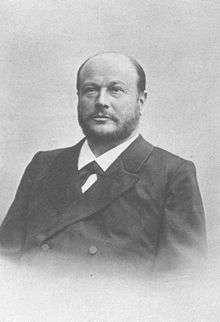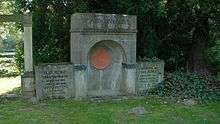Max Runge
Heinrich Max Runge (21 September 1849, in Stettin – 27 July 1909, in Göttingen) was a German obstetrician and gynecologist.

He studied medicine at the universities of Jena, Leipzig, Bonn and Strasbourg, where in 1875 he received his doctorate. In 1879 he obtained his habilitation at Berlin under the sponsorship of Adolf Gusserow. In 1883 he became a professor of obstetrics and gynecology at the University of Dorpat, and five years later relocated as a professor to Göttingen, where on three separate occasions he served as dean at the university.[1][2]

He was the author of influential textbooks on both obstetrics and gynecology. The focus of his research included hot water therapy for uterine atony, treatment of puerperal fever, fetal disease, umbilical infections and laparotomy.[1]
Selected works
- Die Krankheiten der ersten Lebenstage, 1885 – Diseases of the first days of life.
- Lehrbuch der Geburtshülfe, 1891 – Textbook of obstetrics
- Lehrbuch der Gynäkologie, 1902 – Textbook of gynecology.[3]
References
- Runge, Heinrich Max In: Neue Deutsche Biographie (NDB). Band 22, Duncker & Humblot, Berlin 2005, ISBN 3-428-11203-2, S. 264.
- Runge, Heinrich Max Pagel: Biographisches Lexikon hervorragender Ärzte des neunzehnten Jahrhunderts. Berlin, Wien 1901, Sp. 1451.
- HathiTrust Digital Library (published works)